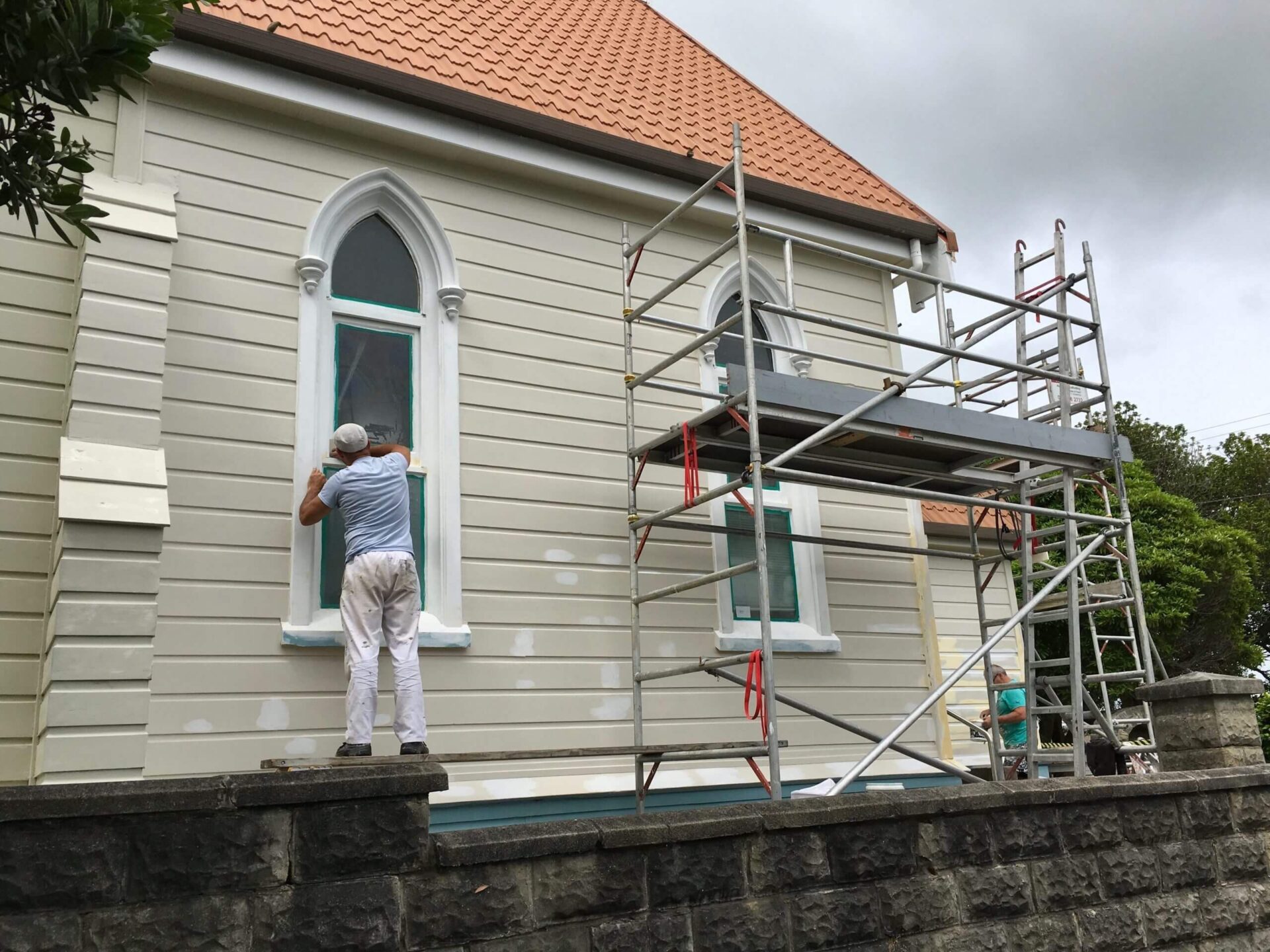I. Introduction
Painting is a crucial aspect of upgrading and maintaining both interior and exterior spaces. Whether you’re a homeowner looking to refresh your living space or a business owner seeking to enhance your commercial property, hiring the right painter is essential. While both residential and commercial painters provide similar services, there are significant differences between the two that can impact the success of your project.
II. Scope of Work

1. Residential painting
Residential painting primarily focuses on single-family homes, addressing both interior and exterior spaces. Common areas that residential painters work on include ceilings, walls, borders, decks, and siding. These projects are typically smaller in scale compared to commercial painting jobs, allowing for a more personalised approach.
2. Commercial painting
Commercial painting, on the other hand, involves larger and more complex structures such as retail buildings, healthcare facilities, schools, offices, restaurants, churches, apartments, hotels, and industrial projects. These projects require a broader skill set and a team of painters who can handle the unique challenges that come with larger-scale work.
III. Materials and Equipment
1. Residential painting
Residential painters often use materials and equipment that are readily available at hardware stores. Common tools include paintbrushes, rollers, trays, ladders, drop cloths, and cleaning supplies. Residential painters also work with various paint types, such as oil-based, water-based, and latex-based paints, and different sheen levels like flat, eggshell, matte, satin, semi-gloss, and gloss.
2. Commercial painting
Commercial painting projects require specialised materials and equipment to ensure durability and longevity. High-quality paints and coatings are essential for withstanding the wear and tear of high traffic areas. Commercial painters also use advanced equipment, such as scaffolding, lifts, and sprayers, to efficiently cover larger surfaces and reach higher elevations.
IV. Project Management

1. Residential painting
Residential painting projects often have a more relaxed approach to project management, with a focus on attention to detail and customer satisfaction. Residential painters work closely with homeowners to understand their vision and preferences, providing guidance and recommendations throughout the process. While timelines are still important, there is generally more flexibility compared to commercial projects.
2. Commercial painting
Commercial painting projects demand a higher level of project management due to their complexity and the involvement of multiple disciplines. Efficient production, scheduling, and minimal delays are crucial to meet the expectations of property owners and minimise disruptions to their businesses. Commercial painters must coordinate with various stakeholders and ensure that the project stays on track and within budget.
V. Experience and Skills
1. Residential painters
Residential painters prioritise customer service and have experience dealing with individual homeowners and their unique needs. They are skilled in colour consultation, helping homeowners select the perfect palette for their space. Residential painters also pay close attention to detail, ensuring that every aspect of the project meets the homeowner’s expectations.
2. Commercial painters
Commercial painters are specialised and experienced in handling larger, more complex projects. They possess the knowledge and skills to work safely at heights and in hazardous environments, such as industrial settings. Commercial painters are also familiar with specialised paints and coatings, ensuring that the right products are used for each specific application.
VI. Scheduling and Work Hours

1. Residential painters
Residential painters typically work on a Monday to Friday schedule, with some flexibility to accommodate the homeowner’s preferences. They may also work on weekends, depending on the project timeline and the homeowner’s availability.
2. Commercial painters
Commercial painters often need to be more flexible to accommodate the needs of the business or property owner. This may involve working during off-hours or weekends to minimise disruptions to the business operations. Commercial painters must be able to adapt to the client’s schedule and work efficiently to meet deadlines.
VII. Conclusion
While both residential and commercial painters share the common goal of transforming spaces through paint, there are significant distinctions between the two. Commercial painters handle larger, more complex projects that require specialised skills, materials, and project management. Residential painters, on the other hand, focus on providing personalised service to homeowners and pay close attention to detail.
When choosing a painter for your project, it’s essential to consider your specific needs and goals. Understanding the differences between residential and commercial painters will help you select the right professional for the job, ensuring a successful outcome. Whether you’re revamping your home or upgrading your commercial property, working with the appropriate type of painter will bring your vision to life while meeting your expectations for quality, efficiency, and customer service.
If you’re looking for professional and reliable painting and decorating services in Wellington, look no further than Wellington Decorators Limited. With our experience and skilled team of craftsmen, we are committed to delivering stunning results and complete satisfaction for your home.
Email: info@wellingtondecorators.co.nz
Phone: 027 458 6465
Address: 1 Comber Place, Johnsonville, Wellington 6037
Office Hours: Monday to Friday, 8:00 am – 5:00 pm
Don’t wait any longer, click the button below and fill out our contact form. We’ll get back to you soon to provide a free consultation and quote. Let Wellington Decorators Limited turn your dream home into a reality today!
